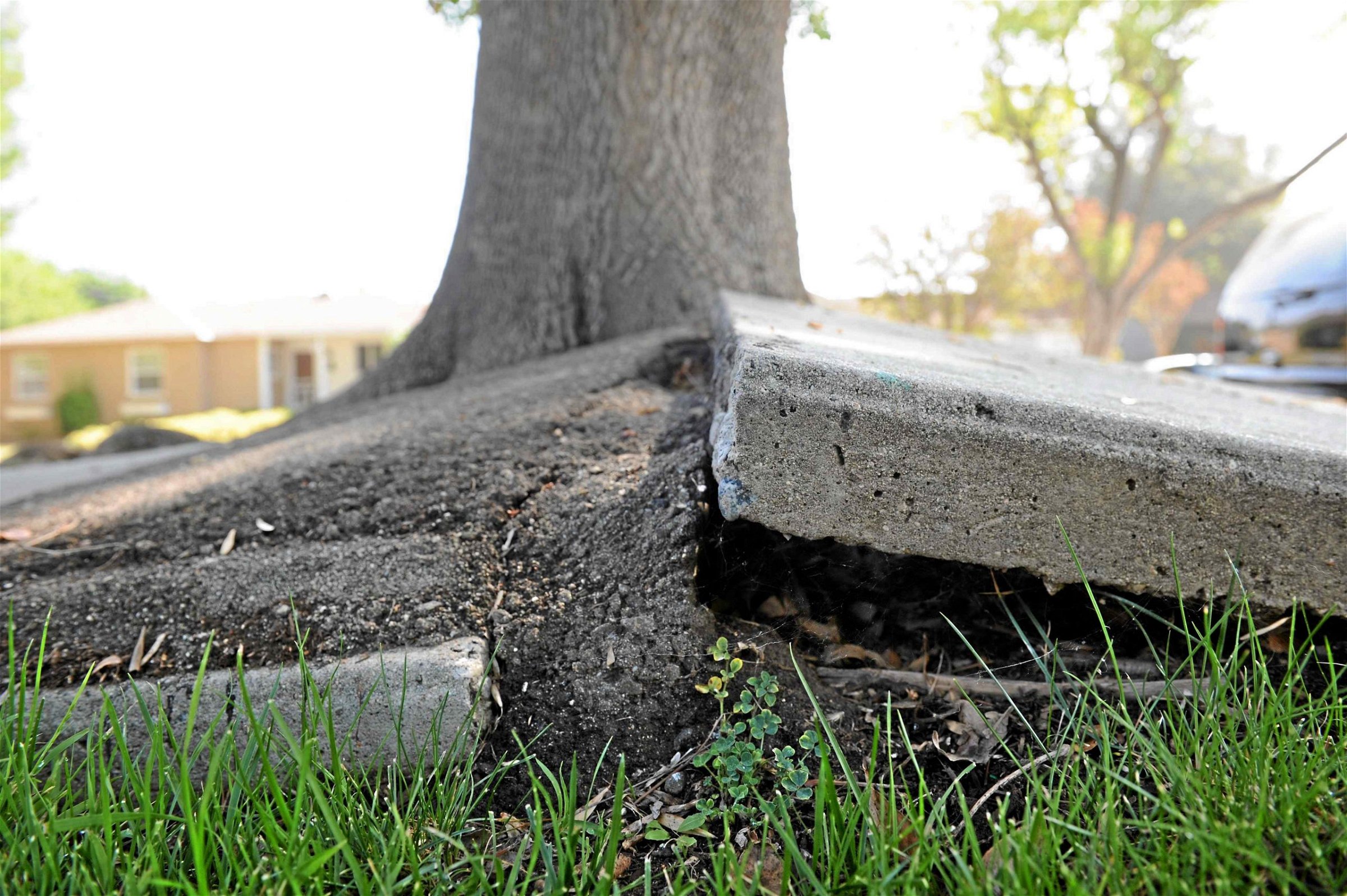
The Los Angeles City Council set into motion today the initial stages of a $1.4 billion plan to repair a backlog of broken sidewalks that will allow the city to turn over the responsibility of future upkeep to property owners.
City officials plan to spend the funds, which will average at least $30 million a year over the next three decades, to fix about 11,000 miles of sidewalks throughout the city. The amount of money was agreed to as part of a legal settlement with disability advocates.
The number of damaged sidewalks began piling up about 40 years ago, when city leaders saddled themselves with the responsibility of fixing broken sidewalks damaged by tree roots, but soon ran out of money to finish the job.
In the intervening years, the question of who is responsible for the condition of the sidewalks was in dispute because state law says the task of maintaining sidewalks belongs to the adjacent property owners.
The City Council voted today to adopt a “fix-and-release” strategy that includes repealing a law that makes the city responsible for the repairs, while also committing to paying for the entire expense of one-time repairs on broken sidewalks next to both residential and commercial properties.
“For decades, the city of Los Angeles lacked a coherent plan to deal with crumbling sidewalks in our neighborhoods,” Councilman Paul Krekorian said.
“That’s all changing” with the sidewalk repair program — dubbed “Safe Sidewalks LA” — that is being launched today, he said.
City officials will begin rolling out several sidewalk repair programs beginning next month. A website will go up on Thursday at https://sidewalks.lacity.org to accept repair requests.
One of the more immediate repairs will likely be the result of requests by those who have a physical disability and have trouble walking over damaged sidewalks and curb ramps. They will also be able to submit requests to have the repairs occur sooner.
The city is also in the midst of paying for repairs of sidewalks next to government facilities.
A broader, complaint-based program is also in the works, with the city expected to begin studying the environmental effects of doing repairs on a more widespread basis. The study would look into how the city will mitigate the effects of trees being removed as the result of the sidewalk repairs yet to be addressed.
While the environmental impact is being studied, property owners can move their repairs up in the queue by agreeing to pay for half of the costs. A rebate program will be available for three years to reimburse property owners up to $2,000 for sidewalks next to residential lots or $4,000 for those next to commercial lots.
Under the lawsuit settlement, the city is required to prioritize sidewalk repairs next to government facilities, transportation corridors and medical buildings.